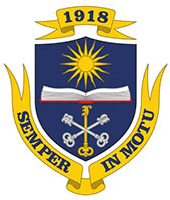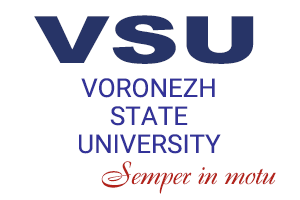The Rector of Voronezh State University, Dmitry Endovitsky, talked about the beginning of his career at VSU, the changes and innovations at the university, the human resource policy, and his expectations for 2021.
“When you entered VSU, could you imagine becoming the rector of the university? How did you see your future?”
“When I was young, a position at university seemed highly prestigious and very difficult to get. VSU was the only university in the Central Black Earth Region. When I entered it, I couldn’t imagine that I would get a chance to work here. That was the era of possibilities, when a clash of two historical periods occurred: the USSR was in the past and we were experiencing the transition from a planned economy to a market economy. And, of course, one wanted to work and earn a lot, to be a respected entrepreneur, a banker or a businessman.”
“You have been the VSU rector for nearly 10 years. How would you assess your work? What decisions do you consider the most significant and right? Which results are of the highest importance?”
“The results are impressive indeed. The university has increased its revenue nearly twice. For example, this year we are expecting a revenue of 3 billion 100 million roubles, and these numbers exceed those of the previous year. Despite the crisis and the coronavirus pandemic, the university is steadily developing, is conducting research, and is interacting with employers. The educational process hasn’t stopped for a single day. One of the important results of the latest decade is that VSU has entered all international rankings, it is recognisable on all continents of our planet, has a sustainable brand, and is highly competitive in the international system of education. In 10 years, the academic facilities for the educational process and research activities have changed radically: now, we have 50 world-class laboratories where our lecturers, researchers, young scientists, post-graduate, and undergraduate and postgraduate students work. Other results of the 10 year work include the construction of a modern swimming pool which was certified for international competitions, the building for the Faculty of Economy, and a new comfortable hall of residence for students, the reconstruction of the VSU concert hall, building warm stalls for military hardware, creating the academic training base Nikel in the Adygea Republic where geology and biology students can complete their practical training. We also renewed our vehicle pool. The university buildings have been constantly renovated. We also created the engineering centre in the area of sustainable use of natural resources with regard to titanium, gold, and platinum extraction.”
“What principles do you follow when employing staff? Which management techniques of your own do you consider the most efficient?”
“The biggest human resource problem for all universities is ageing human resources. You have to deal with a challenge, to keep the older generation and to create attractive conditions for younger researchers and lecturers so that they find it beneficial and enjoyable to work at the university. This is an extremely difficult task, both in terms of finances and in terms of organisation. However, we have achieved some success. I will give an example of the legendary Faculty of Physics at VSU where Pavel Cherenkov, the first Soviet Nobel prize laureate in Physics studied. Today, the Faculty of Physics has a team of outstanding, world-famous researchers under 45 years old. The university is very well equipped, there are scientific schools, and the educational process is supervised by experienced mentors. It is very important for us to provide decent compensation, opportunities for academic mobility, and opportunities to take part in events, conferences, and training programmes. If we forget about the pandemic, and remember the “prepandemic” period, I am confident to say that many of our lecturers could easily travel around the world. Some of them are very rich people. They are much richer than the rector! Their well-being is the result of their enthusiasm about their research.”
“There is a recent trend of popularising online education. How does VSU react to these new challenges? Do you support them?”
“The key message of the President of the Russian Federation, as well as almost all leading rectors of Russian universities is as following: online education will never replace classical offline education because universities are not just places where knowledge is generated and shared. They are places where people communicate, interact, share their emotions, and feel part of a community. Online education will never be able to provide an appropriate replacement. Yet, we have to understand that we are living in a new world and the things we have learnt since March 2020 will always be part of us. I suspect that when the pandemic is over, there will be a combined system where distance learning technologies will be widely used. We have come a long way. For example, in March we only had 500 Moodle-based electronic courses. Now, there are about 8,500. It was a breakthrough and many teachers have changed their mindset. It is nice to see 60, 70, sometimes even 80 years old lecturers use Zoom or Moodle platforms, read lectures in different languages, and use modern technologies. The pandemic generated a huge impulse: between spring 2020 and December 2020, the university invested huge sums of money (about 50 million roubles) into purchasing new server hardware, gadgets, devices, new computer equipment, and the organisation of online-education. The university has changed.”
“What are the positive ways in which the pandemic has changed the university?”
“The main advantage is that the approach to education has changed. Old copybooks and blackboards with chalk are gradually disappearing from classrooms, though they will still remain. Yet, now students and lecturers can’t understand how they were able to live without modern innovative distance learning technologies. We are 80% of the way to achieving the goal of organising a “Digital university”. The document flow management is also being digitalised. For example, to go on a business trip you won’t have to go to the Rector’s office and have documents signed. Digital signatures, the multifunctional centre, record books, registration of orders, administrative documents, everything will be digital. The university is changing with every new day and is becoming a highly technological intellectual enterprise”.
“Why doesn’t the university provide discounts for fee-paying students during the pandemic? Is it a regional decision or a common practice everywhere in the country?”
“This is a federal trend. Lecturers and students are still studying full-time. First of all, they see each other. Distant learning is not the same as extramural studies as there is no time gap when it comes to communication, exchanging information, and processing it. Secondly, all technological innovations that we have introduced at the university required a lot of resources and we can only draw them from the university’s revenues. Nobody provides us with finances to solve our technological problems. And the amount of work for lecturers has increased by nearly twice! When the lecture was over, the lecturer used to answer a couple of questions and leave. When working online, you have to engage every student in the work and this is quite challenging. Some students use smartphones to listen to lectures and the mobile operators providing mobile Internet services do not always cope with the load. In such cases, lecturers sometimes have to get in touch with students who had experienced problems later in the evening, and sometimes even at night. The expenditure of the university has soared: we have to provide masks, air sanitisers, regular cleaning, and other measures which are taken every day to preserve health and provide safety for both students and lecturers. Online learning is a very expensive thing that is why discounts are out of the question everywhere in the country. However, we have offered students the opportunity to choose how to pay: for a year, half a year, a quarter, or even a month.”
“What goals do you set for the university team in the new academic year?”
“Our paramount goal is to save the lives of our students and lecturers. The second goal is to submit an application and win in the federal contest for the programmes of strategic and academic leadership. The start of this federal contest will be announced at the end of December, and as soon as it happens the statuses of all universities all over the country will be reset to zero: there will be no flagship, national, or research universities. The university team has been preparing the application since May. Alexander Gusev, Governor of the Voronezh Region and the Chairperson of the VSU Board of Trustees, Alexey Gordeyev, Deputy Speaker of the State Duma, and Galina Karelova, Deputy Speaker of the Federation Council, have provided their support.”
“How has the training of international students been organised during the pandemic?”
“The majority of international students are still in our halls of residence; they are under our protection and continue interacting with the university and studying. We also communicate individually with students who are abroad. All Voronezh universities are experiencing a similar situation.”
“Has the crisis affected the staff? Are there any redundancies on the way?”
“There have been no redundancies and none are planned for the future. We cherish our academic staff, they have a unique combination of experience, youth, energy, drive, and eagerness to work.”
“What are the plans for 2021?”
“2021 will be a crucial year for both universities and the system of education as a whole. Hopefully, next year we will be able to turn the tide of the coronavirus pandemic by vaccination and will be able to get down to working normally. However, we will continue our work on a technologically new level. The university will take part in more federal contests, will try to solve more tasks set for it by the international community. VSU is the leader in the Russian Federation in terms of implemented EU projects. Now, we are involved in 35 different projects. The People’s Friendship University of Russia, Moscow State University, and Saint Petersburg State University do not have similar project packages that is why we will continue promoting our university and the Alumni Association on the global stage. I would like our volunteer movement to remain active and be able to work without restrictions in the new year. Hopefully we will be able to launch a very interesting project “Education and public diplomacy as factors for regional security” by the EU Ambassador, Markus Ederer. This project, which has been developed with the participation of researchers from Russia, Ukraine, Belarus, and the EU countries, is expected to bring together rectors, specialists, and experts in cross-border cooperation and intercultural communication. This is a ground-breaking initiative, considering the political disagreements between the countries. We hope that VSU will become the start-up platform for the reset. In 2021, we would like to boost our face-to-face interactions with our business partners: the international companies Bayer and Siemens, ROSATOM where VSU is the flagship university of the state corporation, and others. We always engage our student community in all activities with Russian and international business partners to make our students visible by major employers who can offer them good career opportunities. VSU students have the opportunity to see the work process “from inside” in such companies as Sberbank, EFKO Group of Companies, and SIBUR and to evaluate the modern manufacture at NLMK. We hope that by spring 2021 the situation will stabilise and we will proceed with developing our students and receiving awards for our research.”
The article was prepared by the editorial office of partner projects RBK+


